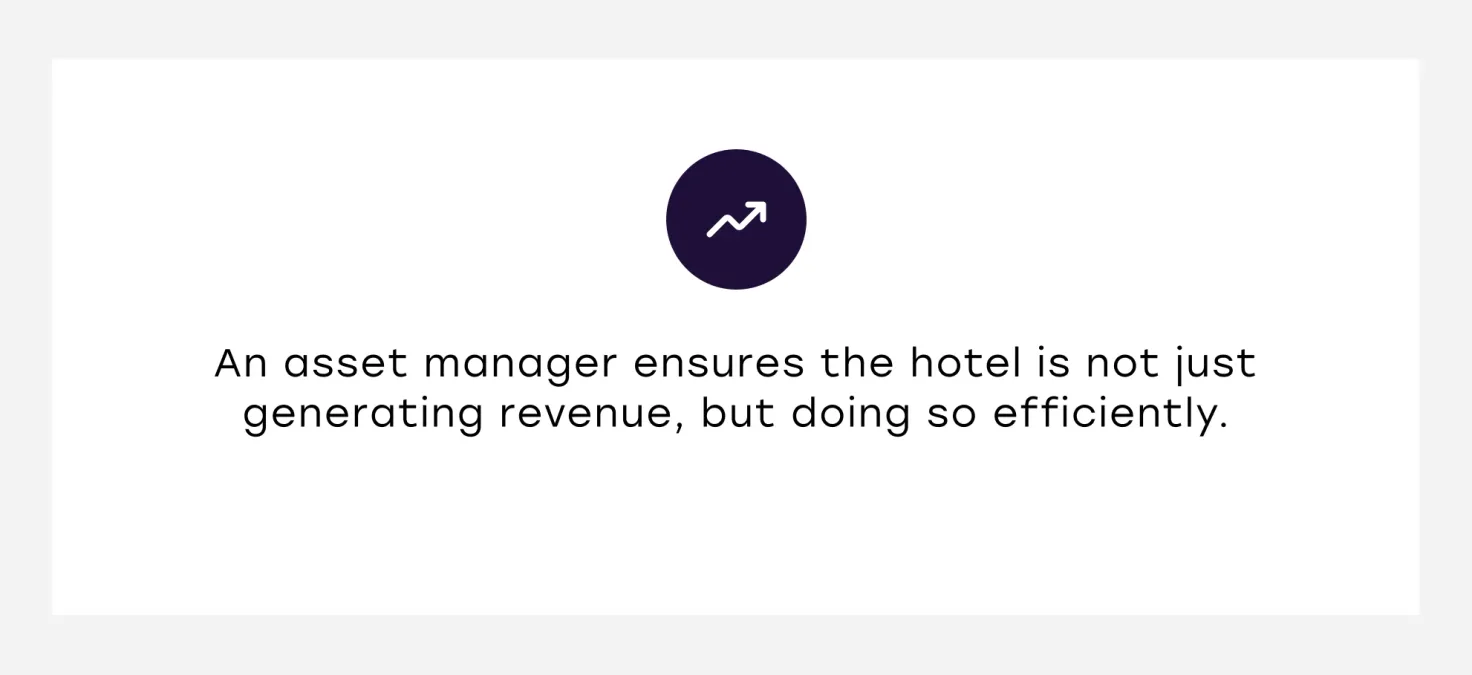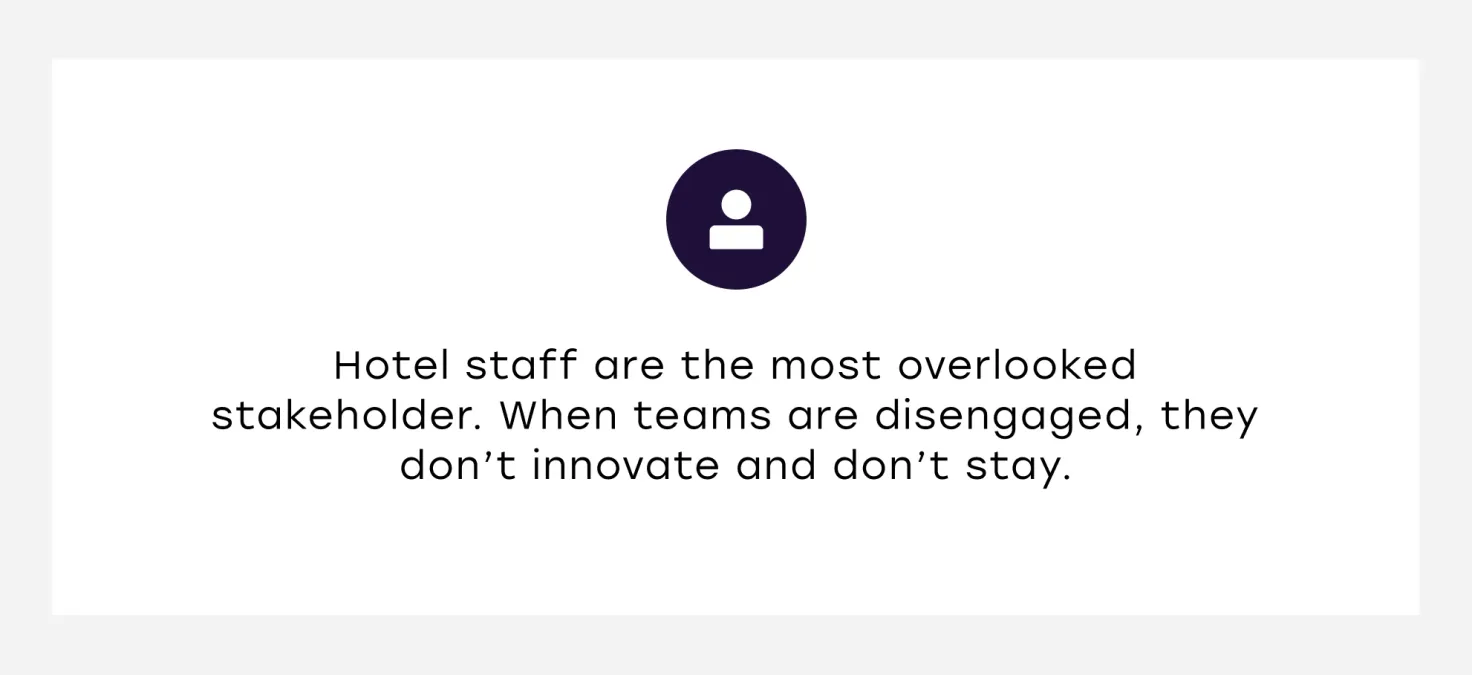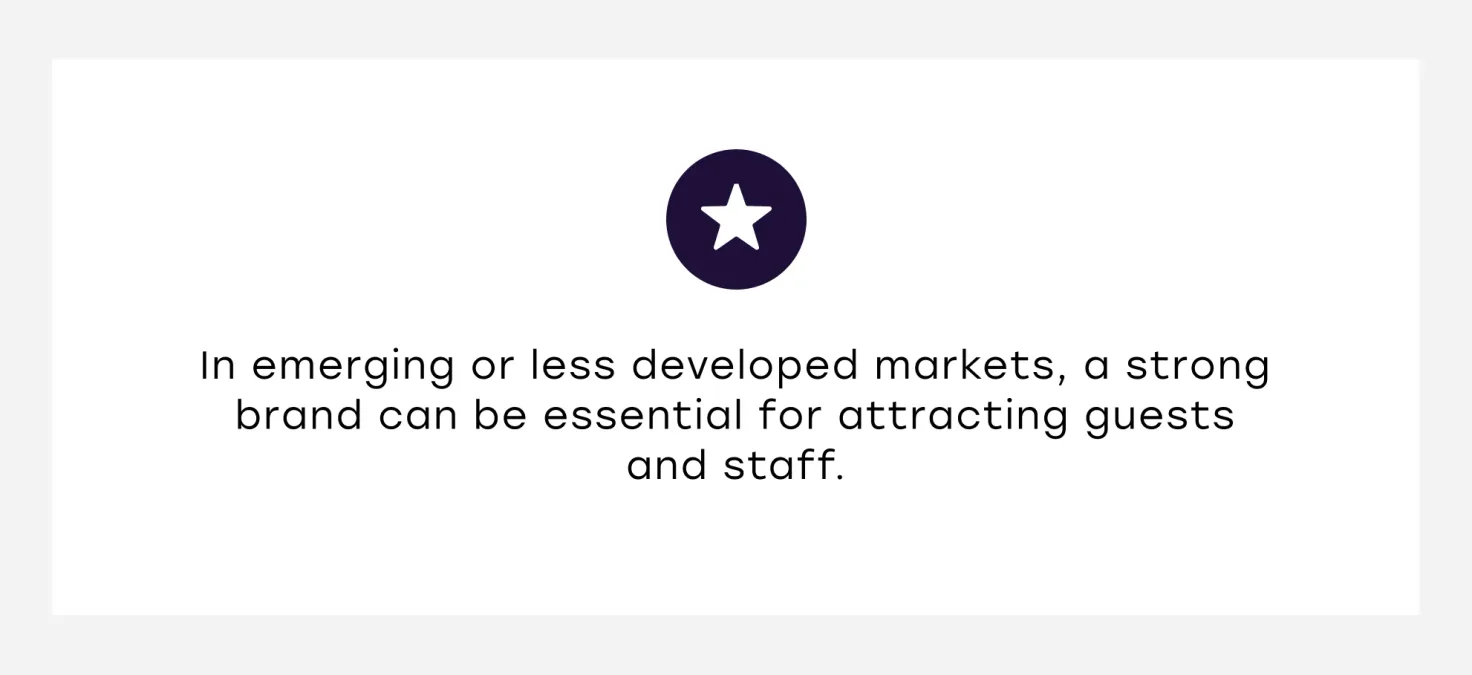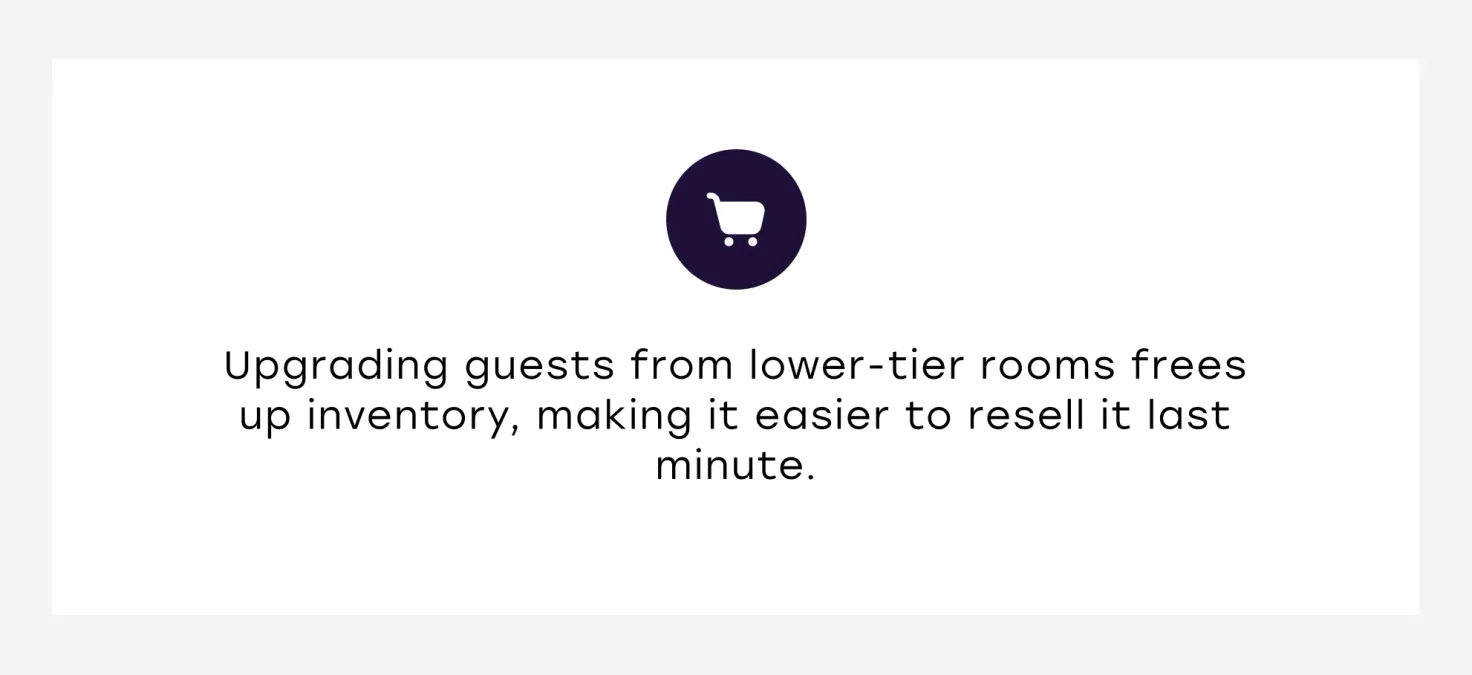What is hotel asset management: Best practices and pitfalls
Oaky
•

Hotel asset management is more than just financial oversight. It’s become a strategic function that bridges the gap between ownership, operators, brands, and on-the-ground hotel teams.
Here’s a summary of the insights shared by Alex Slors, founder and managing director of Alex Slors Consulting, in a LowKey by Oaky episode. He unpacks how communication is one of the crucial aspects, yet it’s often dismissed as a “soft skill”. From communication to physical asset contracts, here’s how to avoid some of the most common pitfalls that can prevent your hotel property from realizing long-term success.

What is hotel asset management?
Hotel asset management is the practice of overseeing a hotel’s operations, finances, and strategy. The goal is to maximize profitability, ensure efficient operations, and protect or grow the asset’s long-term value on behalf of the property owner or investor.
What is the role of a hotel asset manager?
As Alex Slors explains in the podcast, asset managers are more than watchdogs. He explains,
“The role isn’t to be the general or commander, but the glue that connects every stakeholder—from investors to GMs.”
As such, hotel asset managers have a variety of duties and responsibilities that include:
1. Monitoring operator performance
To ensure that high-level standards are met across all branded hotel chains or third-party managers, a hotel asset manager works closely with other key managers. Together, they evaluate the quality of the hotel’s offering and service and improve the operational procedures to lift the standard even higher.
2. Analyzing financial data
Needless to say, financial performance is crucial. On a monthly and quarterly basis, they’ll monitor metrics like:
3. Optimizing capital investments and renovation planning
Aside from focusing on past and current performance, hotel asset managers must also plan for the future. This includes developing asset management planning strategies to improve the hotel’s capital investments such as planning renovation projects which will improve the guest experience and hotel’s value.
4. Aligning the hotel's strategic direction with ownership goals
In addition to serving guests, hotels also need to cater to investors and hotel owners. Asset managers must ensure that hotel’s offering will be able to realize these key stakeholders’ vision and goals. To do this, there needs to be regular meetings to ensure they are on the same page and all parties are up to date with the latest performance and projections.
5. Benchmarking performance against the market and comp set
As part of their financial analysis, they compare the hotel’s performance against the hotel’s own historical data as well as market comparables. This way, they get a holistic picture of the hotel’s performance and can make data-based decisions to identify opportunities that can make the biggest impact.
6. Reviewing management contracts and franchise agreements
In addition to preparing financial reports, they also have to pay attention to other types of paperwork like contracts and agreements. This is an important part of controlling risk management. Regularly reviewing legal documents helps the team identify weaknesses and ensure compliance with legal aspects.
7. Advising on branding, positioning, and operator selection
Then, to help the hotel improve its results, the hotel asset management team also needs to create a plan for how it can improve its market share and build upon its branding. This can include identifying new types of hotel guests it wants to target, such as business travelers, or working with new partners like a fitness brand.
Why is hotel asset management important?
Hotel asset management protects and grows the value of one of the most complex real estate investments: a hotel.
Hotels aren’t just buildings. They’re operational businesses with fluctuating revenue, staff-intensive operations, and market-sensitive performance. Without strategic oversight, even well-run hotels can underperform financially or drift away from an owner's long-term goals.
Strengthen your hotel's EBITDA with automated upselling
Here’s why hotel asset management matters:
1. Maximizes profitability
An asset manager ensures the hotel is not just generating revenue, but doing so efficiently. By monitoring KPIs like GOP, NOI, and TRevPAR, it can reduce unnecessary costs and identify new revenue streams.

2. Aligns hotel operations with ownership goals
Owners and operators often have different priorities. Asset managers serve as the owner’s representative, making sure the operator’s decisions align with the owner's investment strategy, whether that’s cash flow, brand positioning, or exit value.
3. Provides strategic oversight
From capital expenditure (capex) planning to market repositioning, an asset manager thinks long term. They help make decisions about renovations, rebranding, or reflagging that directly affect the asset’s value.
4. Improves operator accountability
Operators are focused on day-to-day operations. Asset managers challenge assumptions, set performance benchmarks, and ensure the hotel management team is delivering results.
5. Optimizes return on investment
Through smarter decision-making, tighter financial control, and better market positioning, hotel asset managers help owners get the most out of their investment over time.
5 Common pitfalls in hotel asset management
During the 35+ years that Alex Slors has worked in the hospitality industry, he’s seen the following recurring pain points:
1. Underestimating the power of communication and alignment
According to Alex, poor communication is the silent killer of hotel profits.
He explains, “Miscommunication creates confusion and confusion leads to bad decisions that hurt the bottom line.”
When there’s misalignment among owners, brands, asset managers, and hotel teams, the hotel becomes a battlefield of competing agendas. This misalignment quickly shows up in the numbers, particularly in eroded EBITDA and missed revenue targets.
2. Conflicting agendas between owners and brands
Brands may prioritize guest satisfaction and brand integrity, while owners focus on profitability and ROI. Without a translator (which often falls on asset managers), these goals can clash.
3. Siloed teams and disconnected priorities
Hotel GMs and department heads often operate with only partial understanding of ownership goals. This disconnect trickles down into guest experience and operational performance.
4. Not taking into account the main stakeholder - hotel staff
Employees are often the most overlooked stakeholders in asset management conversations.
Teams on the floor become disengaged when they don't understand what’s being asked or the reasoning behind it. Disengaged teams don’t upsell, don’t innovate, and don’t stay.
“Every misalignment at the top eventually hits the guest experience at the bottom,” Alex reminds us.

5. Prioritizing short-term thinking over long-term value
Revenue teams may chase RevPAR, ADR or occupancy goals without considering how these tactics affect long-term positioning or market value.
Top tips for a hotel asset management success
1. Stay close to operations
Successful asset management means working closely with hotel teams who manage day-to-day operations. Understanding what’s happening on the ground is critical to making informed decisions that impact guest experience and profitability.
It’s not just about collaborating closely with the rest of the team, but also to keep your finger on the actual property. In addition to staff meetings, you also need to add regular site visits and walkthroughs to your calendar. This allows you to observe the physical condition of the property, cleanliness as well as service quality.
2. Manage the transition from development to operations teams
Sales and development teams negotiate contracts with owners, but after signing, the operations team takes over. Asset managers must oversee this handover and facilitate knowledge transfer to ensure the brand delivers on its promises and the hotel runs smoothly.
To help manage this transition, they can conduct audits to evaluate whether SOPs, staff training, guest journey planning, and revenue management strategies are in place.
Ongoing involvement is also needed for resolving issues, managing expectations, and maintaining a strong relationship between owners and operators.
3. Pick the location thoroughly
The value of a hotel brand depends on the market. In major cities like London or New York, many brands compete, so the brand itself might not drive business. In emerging or less developed markets, a strong brand can be essential for attracting guests and staff.
To help evaluate the location strategically, hotel asset managers need to split their brain and look at analyzing existing demand and future growth. For example, are there seasonal peaks of certain customer segments that dominate? What about planned infrastructure projects in the nearby location like airport expansions or new business hubs?
Then, they also need to consider factors like:
Site accessibility
Availability, cost, and educational background of the labour force
Utilities and taxes
Local regulations like zoning laws and government incentives.

4. Consider white-label operators for flexibility
White-label management companies offer local expertise, flexibility, and often more favorable contract terms. They can be a better fit in secondary markets or regions with unique local regulations.
6. Build trust by being fair and transparent
Trust is critical. Owners and brands want asset managers who are fair, transparent, and consistent. Building this trust ensures smoother negotiations and stronger partnerships.
To help foster trust, incorporate the following best practices into your routine:
Act as a neutral advocate
Show understanding of the operator’s challenges
Base feedback on data and industry benchmarks instead of assumptions or opinions
Raise issues early using a solution-oriented approach.
7. Keep learning and sharing knowledge
Staying updated through education and mentoring helps asset managers stay sharp and effective. From reading articles written by industry leaders to catching up with industry real estate professionals over a biweekly brunch, there are many ways that you can grow your skill set with the right knowledge.
Then, also take the time to share your industry knowledge. This way, the wider hotel community benefits which in return will be good for your hotel.
How can upselling impact EBITDA and hotel asset management?
Hotel upselling can have a direct and meaningful impact on both EBITDA (Earnings Before Interest, Taxes, Depreciation, and Amortization) and hotel asset management in several ways:
1. Increased revenue without proportional cost increases
Automated and personalized upselling, like what Oaky hotel upsell software offers, generally produces high-margin extra revenue by allowing you to sell upgrades, offers, and add-ons throughout the entire guest journey. It also increases average daily rate (ADR) and TRevPAR, KPIs that asset managers like to track closely.
Plus, since these are often enhancements to existing bookings, there's minimal additional cost. As such, most of the extra revenue flows directly to EBITDA.
See Pre-Stay Upsell in action!
2. Better use of fixed assets
Suites and premium rooms often sit empty while standard rooms sell out. Upgrading guests from standard to premium rooms frees up lower-tier inventory, which is easier to sell last minute.
This optimizes occupancy and yield, contributing to higher RevPAR, which improves EBITDA.
Upselling isn't limited to rooms, though. It can apply to meeting rooms, spa access, parking, or club lounge privileges. These are all fixed assets that cost money to build and maintain, and upselling helps monetize them more effectively.

3. Cost efficiency
Knowing upsell preferences in advance (e.g., via pre-arrival upselling) helps forecast demand across outlets like F&B or wellness. This helps reduce waste and control labor costs—both of which positively affect EBITDA margins.
4. Boosting asset value
Stronger EBITDA contributes to a higher valuation of the hotel asset, as EBITDA is a core input in cap rate or DCF-based valuation models.
Hotel investors look at consistent ancillary revenue as a sign of operational excellence and market positioning.
5. Differentiating the property
A well-run upselling program reflects an innovative, guest-centric operation. This enhances brand reputation and makes the asset more attractive to potential buyers or partners.
For example, Oaky’s customers differentiate their brand by offering guests exclusive options such as a “Morning Run with an Employee” at Pulitzer Amsterdam or a VIP package at Iberostar Hotels & Resorts.
Final Thoughts
Hotel asset management has evolved from simply spreadsheets that serve as a financial checkpoint and property inspections. It’s about developing a comprehensive asset management strategy for long-term success, setting in place transparent and timely communication with all stakeholders, and ensuring alignment with hotel company executives.
As Alex Slors reminds us, true value lies in connecting all stakeholders around shared goals. It’s about making informed decisions that protect both the guest experience and the bottom line.
By integrating high-margin strategies like upselling and focusing on long-term value creation, asset managers can play a pivotal role in unlocking hidden revenue and boosting EBITDA.

